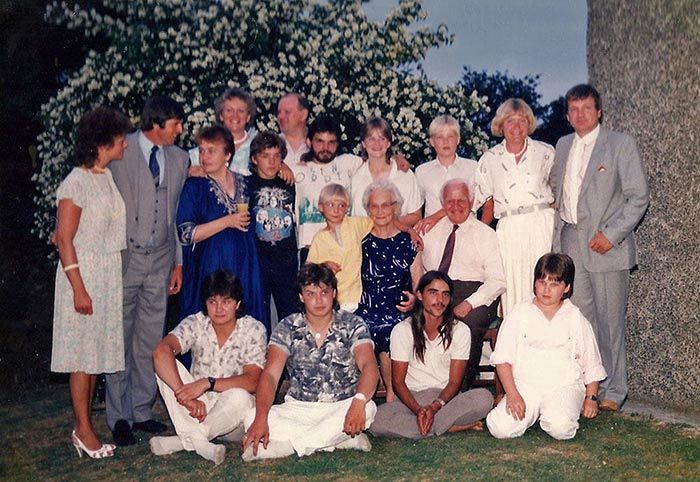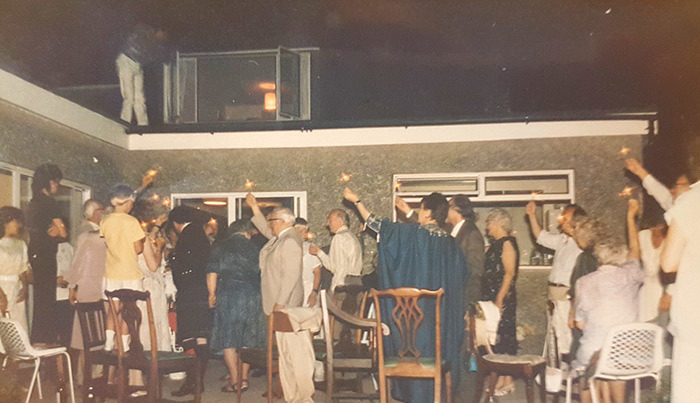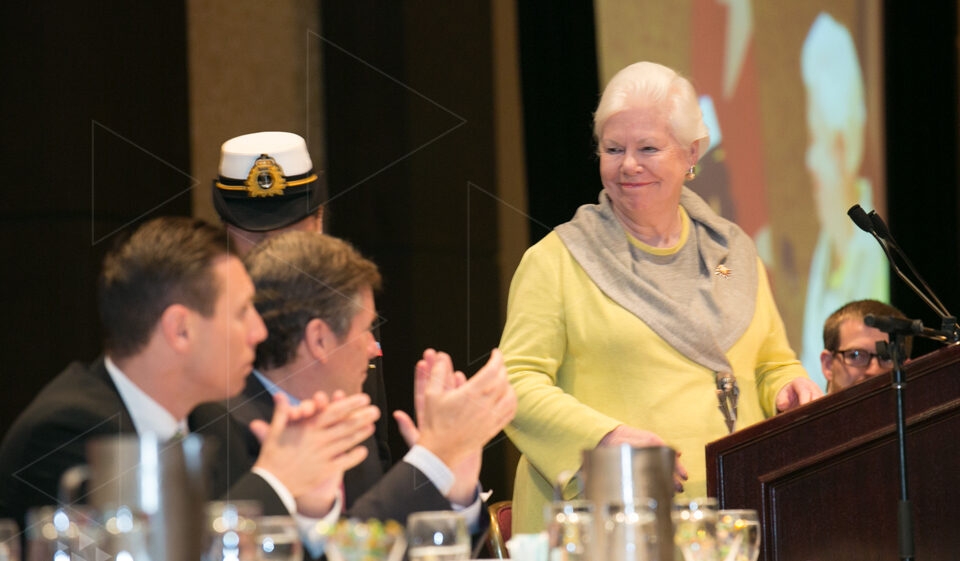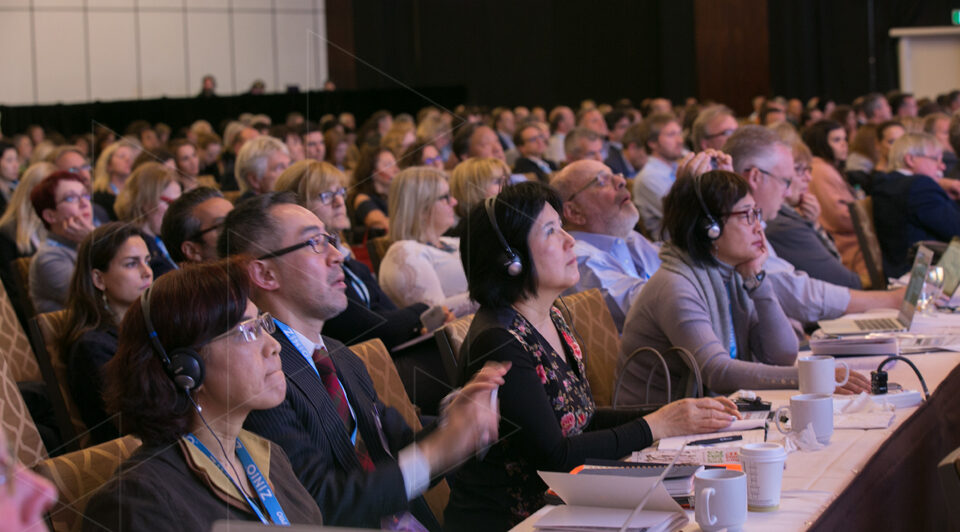Video and production tips from hosting our first virtual event
COVID-19 (coronavirus) has made organizations all over the world rethink how they do business — whether it be sales conversations, internal meetings, or even planned in-person events
IMPACT had Digital Sales & Marketing World planned as an in-person event for April and when things quickly changed, so did our plans
Specifically we’re discussing:
What were the first few decisions you had to make to plan the virtual event?
What is the distinction between a webinar vs. a virtual event?
Why did IMPACT choose to go with pre-recorded sessions vs. live?
Did we see a difference between the pre-recorded sessions vs. live?
The tool we used for Digital Sales and Marketing Day, and what we looked for in a tool
What software did the team use for their pre-recorded sessions?
What were the good and bad parts of having people pre-record on their own at home?
What were the biggest takeaways from promoting the event?
How is IMPACT repurposing all of the video content from the event?

The Importance of Event Videography
The importance of event videography should be on everyone’s mind. Whether you are holding a huge corporate event or rare family gathering, get it recorded. Those events are special and something to be cherished and looked back upon in years to come. Let us help you record them!
Event Videography
I had already been into photography for a number of years and had dabbled with video. Because this was a full on celebration day, I decided to film it on a VHS video tape recorder (no digital back then).
I made sure to capture everything and everyone and can still just about remember various sections of that tape:
Filming my grandfather in his lounge
Recording my cousins making Vodka and orange drinks
Standing on the roof of the house to record everyone outside
Filming my older cousin fast asleep at the end of the day
You see, I only have vague memories of that wonderful day because not long after, someone in my family who shall remain nameless, decided to record over the entire event with a western movie! It had gone forever…no back-up, no second copy, nothing! I was gutted to say the least.
What makes it worse is that not long after that day, we lost my grandmother and auntie and then about 10 years later, my granddad had passed too. I would give anything to see that video now.

The ROI of a Corporate Event Highlight Video
I get asked about this a lot by event planners so I wrote this article to answer two main questions:
What is a corporate event highlight video?
Why are corporate event highlight videos important?
A highlight video is 2-3 minute video that encapsulates the essence of your corporate event. It could be a town hall meeting, a trade show, conference or any event that matters to your company.
Lifecycle of a corporate event highlight video
The good thing about a highlight video is that you can use it as soon as the event wraps. A great strategy to maximize your investment for a highlight video is that you can use it 365 days of the year until the next event comes up.
END OF EVENT – you can use it as a feature presentation at your closing party or dinner.
NEXT DAY – use it in conjunction with your press releases, to thank sponsors and attendees, exhibitors, volunteers and vendors. Put the video up on your website and create social media content around it. If you are to send thank you cards for your sponsors, why not send it with this video on a usb stick.
WEEK 1 -2 – use it as an internal video to thank your staff for putting a rockstar of an event.
MONTH 1 – as the head event planner, use it to (or the raw footage) see what you missed at the event itself. We all know you were so busy running around that you missed the entire event. Use it to assess the success and weaknesses of your event from a planners point of view.
MONTH 3 – Sometimes, at this stage – researching and inviting new sponsors is already in the works. Why not leverage this video to help you sell the event for next year by pointing highlights of this year’s event (via the video) that may benefit them.
MONTH 4 – Email invite to prospect attendees. By this time the attendees have had time to digest what they learned from your event, why not give them a little nudge to save the date for next year with this video as a great reminder for the fantastic time they had at the event.
MONTH 5 – As a head event planner, it’s time to share the raw footage of this video with your team to assess what needs to be maintained or changed for the next event. It is a great visual tool to remind your staff or people involved of what has transpired. With the looming event coming up, the chances that they will be addressed during this planning stage is the best way to produce a very polished event.
MONTH 6 – Half way through the year. It’s time to review who has come on board as your sponsor or vendor for the upcoming event. Need a little push to find fresh prospects? You guessed it, this video will be able to help you get the conversation started.
MONTH 7 – Is it time to publish your newsletter to your existing attendees? Why not put this video on that newsletter again with a call to action to the EARLY BIRDS.
MONTH 8 – Time to launch the event website once again. Consider re-editing the video which will give people something new to look at. Show them something else they haven’t seen before, make it shareable on social media – make this easy.
MONTH 9, 10, 11 – Splice up the video into small soundbites that will help you created engaging content for the next 3 months. Repurposing the video and repurposing the raw footage will give you longevity. Remember to always lead the call to action into the sales page. Why not inject new information about the event as well with graphic slates.
MONTH 12 – One last hoorah to get people more excited about your event, “last minute deals” “don’t miss out”

Q & A Answers to commonly asked questions from the experts on Thumbtack.
How do you choose a wedding videographer?
A wedding videographer will create a lifetime memory for you from edited video footage of your wedding day, ceremony and reception. Choosing a wedding videographer starts with looking online at portfolios of their past work. There’s no need to talk to anyone unless you love what you see. Next, make sure they have good reviews and past client experience; don’t be shy about asking for references if there aren’t any posted online. When you find someone who has a style you love, ask if they are available on your wedding day. If so, it’s time to talk pricing. Be clear about your maximum budget, and ask what kind of packages they offer. Pricing will depend on the number of crew needed for filming, the hours they are required to be onsite, post-production editing, and the length of the final product. Talk with several wedding videographers to get a feel for what prices are like in your region. Nationally, the average cost for wedding videography ranges between $990 and $1,260 per event. Once you agree on a product and have a plan, get everything in a written and signed contract. Clearly state the details of what is expected for your wedding day and from the final product. Be prepared to pay a deposit to reserve their services for the day, then pay the remainder upon receiving the video.
What is a videographer and what do they do?
A videographer professionally films weddings and other events and edits the footage to create film keepsakes or marketing materials for their clients. Wedding videographers record all the key elements of your wedding day, ceremony and reception, and then edit the hours of film during post-production to make a wedding video, social media highlight reels, and any other film features you choose. Wedding videography captures, in live action, your vows, the cake-cutting, the first dance, reception toasts, the decor, the guests and all the details of your day. Many wedding videographers also interview guests (based on an interview list provided by the couple) and incorporate the recorded responses into the wedding video. Event videography typically costs less than wedding videography, as events are shorter with less detail. The national average cost for event videography is $500-$760, while the national average cost for wedding videography is $990-$1,260. A videographer usually does not need to be licensed, but it is important to confirm they have insurance and good standing in the business community, as well as good client reviews. A great majority of the work happens during post-production. The pros watch and blend together the hours of footage they took (sometimes from multiple cameras) to capture the story of your wedding day or event.
When do you pay your wedding videographer and wedding photographer?
Most wedding videographers and photographers require a set deposit when you hire them. Wedding season is a busy time and a deposit secures that vendor’s services for your wedding date. It also protects the vendor if the couple changes their mind at the last minute, and they can’t find a new booking and lose work for the day. The deposit may be anywhere from 20 percent to 50 percent of the agreed-upon total price. Always get a written confirmation that your deposit has been received.
What should you ask your wedding videographer before hiring?
Finding the perfect wedding videographer doesn’t have to be stressful. Asking a few key questions upfront will help you find the right fit for your big day. Before talking with wedding videographers, research their work online. Look at their websites, business profiles and social media, and see what their finished wedding videos look like. If the style fits what you’re envisioning, it’s time to reach out. During initial contact, make sure you get along with the person. This is important since they’ll be interacting with you and your guests.
How much is videography for a wedding?
Wedding videography is one thing many couples regret not paying for. It may seem like just another expense during wedding planning, but it’s really special to have a moving memory of your big day. The national average cost for wedding videography is $990-$1,260. Pricing can vary depending on wedding length, special film features, the amount of editing required, and how many videographers are needed to cover the event. Many videographers offer packages that provide different levels of service. A very simple wedding documentary could be $600 or more, while a full-scale cinematic experience involving multiple videographers could be $2,500 or more.

Videographer Resume Examples
Videographers record and edit moving images; their services are required for TV productions, filmmaking, documentaries, and various events. Common duties listed on a Videographer resume example are discussing requirements with clients, filming videos, directing camera studio equipment, editing video digitally, and making content tweaks. Based on our sample resumes, key qualifications for this role are videography equipment proficiency, creativity, attention to details, multitasking, physical endurance, dexterity, and good communication skills. Formal education is not mandatory, although many candidates for this job hold a certificate in videography.
Produced videos of surgical procedures for educational purposes for the residency programs and for national publications.
Prepared with outside producer and/or independently, sponsors video for fundraising events for area hospitals to help achieve their campaign goal of $5 million.
Created conversions and determined best setting for videos for the web-based learning in area health area system.
Designed PowerPoint presentation for numerous medical groups for physician education. These presentation are utilizes at national medical conferences giving the presentation some constancy in their branding.
Investigated how to achieve high quality video and graphics from PowerPoint, creating excellent quality video in less time for use in fundraising campaigns.
Created and designed video for Milwaukee Art Museum Brook Stevens exhibit to be shown in the museum to educate the public on what Brooks Stevens developed.
Produced 10 video productions for Lakefront Festival of Arts over the course of 15 years to thank the volunteers for their efforts.
Volunteered to produce the video for [company name] Team Phoenix project to train and educate breast cancer survivors to participate in a triathlon and healthy lifestyle.
Coordinated interviews with couples/families and executed planning for event(s).
Researched target markets for service.
Implemented creative and unique shots for special events/occasions.
Brought in client base, negotiated prices, filmed events, edited videos and delivered an exceptional product to clients.
Implemented public relations, social media and marketing for the company: business cards, website, Vimeo account, social media sites and brochure packets to reach clients.
Created same-day edits.
Provided online based music/entertainment coverage through the photography and videography, of concerts and industry events
Conducted extensive research to compile biographical content and current information in preparation for interviews
Recorded, edited, and posted interviews and videos for public consumption on [company name]
Implemented creative control in the overall interviewing style and process
Managing all exclusive video content for site and youtube page.
Created videos, full length DVDs and promos for various clients in the NYC area
Brought clients’ video requests to life from the concept stage through to the final finished product
Aided professional clients in creating videos from seminars and corporate workshops
Created fun and exciting full length DVDs of concerts and promotional videos for local rock bands
Wrote, directed, shot and edited all videos in a timely manner while also meeting all creative requests